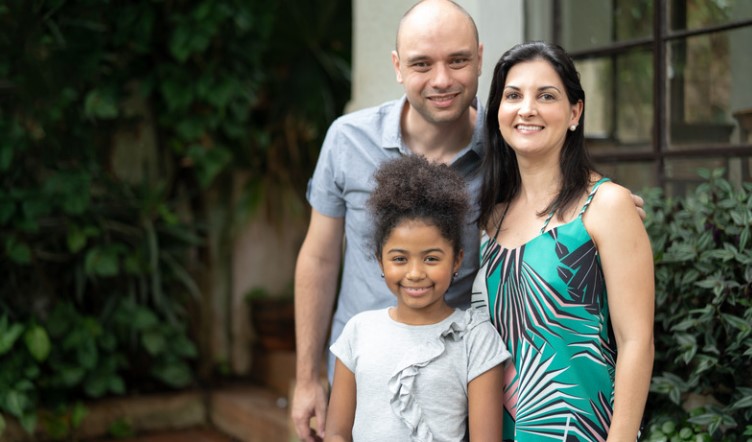Adopting a child is a life-changing decision that requires careful planning and consideration. While the process may seem daunting, knowing you’re not alone is essential. In Canada, many families have successfully adopted children and built happy homes filled with love and laughter.
Whether you’re considering public, private, or international adoption, this guide will walk you through how to adopt a child in Canada. So let’s dive into what types of adoptions are available in Canada and what requirements must be met to start your journey towards parenthood.
Adoption in Canada
Adoption in Canada is a legal process that allows individuals or couples to become the legal parents of a child who is not biologically related to them. It’s important to note that adoption laws vary by province and territory, so it’s essential to research your local jurisdiction before beginning the process.
The primary goal of adoption in Canada is always to provide children with permanent families who can meet their needs and offer them loving homes. Adoption can occur through public agencies, private adoption agencies or international programs, depending on what works best for you as an adoptive parent.
One thing many people don’t realize about adopting in Canada is that birth parents may still have some involvement after the fact. Open adoptions are becoming increasingly popular, allowing for ongoing contact between birth parents and adoptive families.
It’s also important to remember that while many joys are associated with adopting a child, the process can sometimes be emotional and challenging. However, with patience and support from loved ones, it’s possible to successfully navigate this rewarding journey toward building your family.
Types of Adoption in Canada
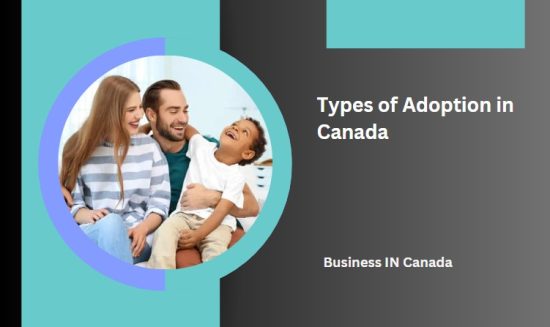
In Canada, there are three types of adoption. Each type has its unique process and requirements. And they are,
- Public Adoption
- Private adoption
- International adoption
It’s important to note that each province and territory in Canada has their specific laws and regulations surrounding adoptions. It’s crucial to research and understand these requirements before beginning the process.
No matter which type of adoption you choose, it’s important to consider factors such as age, gender, culture, health status, and any other preferences you may have when selecting your potential adoptive child.
Public Adoption
Public adoption in Canada is a process that involves adopting a child who is living in government care. These children may have been removed from their biological parents due to neglect, abuse or other reasons that make it unsafe for them to remain at home. Public adoption provides an opportunity for these children to find permanent homes with loving families who can provide them with the support and care they need.
One of the benefits of public adoption is that there are typically no fees involved, aside from minor administrative costs. This makes it accessible for families who may not have the financial means to pursue private or international adoption.
The public adoption process can involve working with a social worker, attending training sessions, completing background checks, and undergoing home studies. It’s important for prospective adoptive parents to be patient during this process, which can take time due to the number of children waiting for placement.
While public adoption may come with its own set of challenges, such as navigating any potential behavioural issues or attachment concerns that adopted children might face after experiencing trauma, it’s also incredibly rewarding knowing that you’re providing a safe and stable environment for a child in need.
Private Adoption

Private adoption is another type of adoption in Canada, which involves the adoptive parents and birth parents finding each other through a private arrangement. This means that there is no involvement from government agencies or social workers.
In private adoption, the birth parents can give up their parental rights to the child and transfer them to the adoptive parents. The process usually involves hiring an adoption lawyer who will guide both parties through the legal procedures.
Adoptive parents have more control over choosing the child they want to adopt in private adoptions. They may also be able to develop a relationship with the birth parent(s) and have access to information about their biological family history.
Private adoptions may seem like a simpler option than public or international adoptions, but they are not without risks. Adoptive parents need to thoroughly research potential issues such as legalities, medical histories of biological families, and financial agreements before considering this route of adoption.
International Adoption
International adoption involves adopting a child from another country. The process can be complex and time-consuming, but it could also be a rewarding experience for those who want to expand their family.
The first step in international adoption is to choose which country you want to adopt from. This decision should be taken seriously because different countries have specific requirements and regulations that must be followed. It’s important to research each country thoroughly before making a decision.
Once you’ve chosen the country, you’ll need to work with an authorized agency or facilitator to help guide you through the process. The agency will assist with paperwork, background checks, home studies, and other required procedures.
Remember that international adoption can take longer than domestic adoption due to additional legal requirements such as immigration processes. However, many families find the wait worth it when they finally bring their child home.
It’s important to note that international adoption costs more than domestic adoption due to travel expenses, translation fees, and legal fees associated with navigating multiple countries’ laws and regulations.
International adoption requires patience and flexibility but can allow families to seek unique cultural experiences while expanding their family through love and commitment.
How to Adopt a Child in Canada?
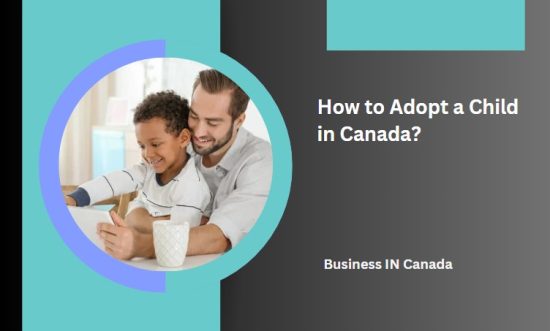
If you are considering adopting a child, it is important to understand the process and requirements in Canada.
To begin adopting a child in Canada, you must first research and select an accredited adoption agency or licensed practitioner. They will guide you through the necessary steps, such as completing a home study and attending mandatory training sessions.
The requirements to adopt a child vary depending on the type of adoption chosen but typically include being over 18 years old, passing background checks, providing references, and demonstrating financial stability.
Adopting a child living in government care may have additional requirements, such as completing foster parent training if the child is placed with foster parents.
Cost is an important factor to consider when deciding whether to adopt. Adoption fees vary widely depending on several factors, including legal fees, travel expenses (for international adoptions), and agency fees.
While navigating the process of adopting a child can be complex and time-consuming – ultimately, providing safe homes for children who need them is an incredibly rewarding experience that changes lives forever!
What Are the Requirements to Adopt a Child?
Adopting a child is a big decision and comes with many requirements. The first requirement is that you must be at least 18 years old, financially stable, and have adequate living space for the child. Additionally, the adoption agency or province will require applicants to undergo medical exams, background checks, and provide references.
Specific legal requirements vary by province but generally include completing a home study process where social workers visit your home to assess your suitability as adoptive parents. This includes evaluating your ability to provide emotional support and stability for the child.
In terms of marital status, single individuals can adopt in Canada, while same-sex couples may face varying regulations depending on their location. Ultimately, what matters most is the ability of the prospective parents to provide love and care for a child who needs it.
It’s important to note that there are sometimes restrictions regarding age differences between the adoptive parents and the children they wish to adopt. These limits exist primarily for safety reasons but can differ depending on the jurisdiction.
Adopting a child requires patience, dedication, and careful consideration of both personal readiness factors and legal requirements established by government agencies or private organizations involved in facilitating adoptions within Canada.
Adopting a Child Living in Government Care
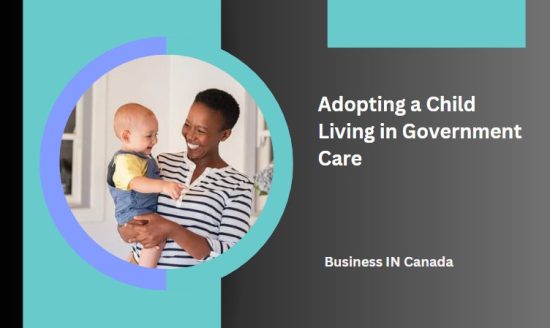
Adopting a child living in government care can be a challenging but rewarding process. These children are typically placed in foster homes or group homes after being removed from their biological families due to abuse, neglect or other issues.
To begin the adoption process, you must contact your local Children’s Aid Society (CAS) or equivalent agency in your province. They will guide you through the necessary steps and provide information about available children who may be eligible for adoption.
It’s important to note that adopting a child from government care may involve more time and effort than private adoptions due to the complex needs of these children. Additional requirements such as training, home studies, and background checks may also exist.
However, providing a loving home for a child who has experienced trauma and instability can be incredibly fulfilling. Therefore, it’s essential to enter into this process with realistic expectations and an open heart, ready to support your adopted child through any challenges they may face on their journey towards healing and stability.
Adopting a Child Living in Private Foster Care
Adopting a child in Canada can be an incredibly rewarding experience for both the adoptive parents and the child. Regardless of your adoption type, it’s important to remember that the process can take time and patience. Educating yourself about what is needed to ensure successful adoption is essential.
If you are considering adopting a child living in private foster care, there are several steps involved, including contacting the local Children’s Aid Society or licensed adoption agency. In addition, you will need to complete an application form and undergo background checks, home studies, and training sessions.
The waiting period for approval may vary depending on several factors such as your location, age range, preference of children available for adoption and more. After being approved by Children’s Aid Society or a licensed adoption agency, they will provide information about eligible children who match your preferences.
Suppose you have found a suitable child after evaluation of all options with various agencies. In that case, legal proceedings will begin where lawyers from both sides (adoptive parents’ lawyer & biological parent(s) ) will appear before court judges ensuring everything follows Canadian law.
How Much Does It Cost to Adopt a Child?
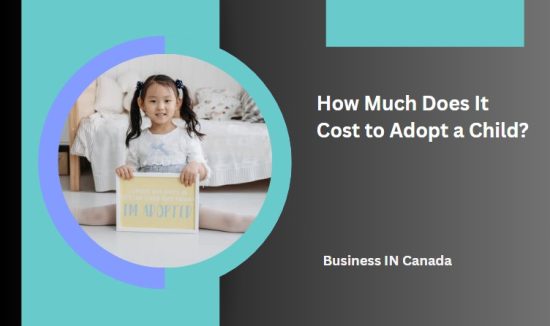
Adopting a child in Canada can be expensive, but the cost varies depending on the type of adoption. Public adoption through government agencies is typically less expensive than private or international adoption.
Public adoptions usually have little to no cost as the government provides support throughout the entire adoption process. This includes training and preparation for adoptive parents, home assessments and evaluations, and legal fees. However, some costs may be associated with medical exams or travel expenses if adopting a child from another province.
Private adoptions involve working with an adoption agency or lawyer who will assist in finding a birth parent willing to give up their child for adoption. Private adoption fees can range from $10,000 to $25,000 depending on various factors, such as legal representation fees and home studies.
International adoptions tend to be more costly due to travel expenses and additional paperwork required by both Canadian laws and foreign countries regulations. International adoption fees can vary but typically start at around $30,000.
While it is possible to adopt a child without significant expense through public agencies in Canada, prospective adoptive parents must expect unforeseen expenses during any process they choose.
Conclusion
After going through the various types of adoption in Canada and the requirements and costs involved in adopting a child, it is clear that adopting a child can be a long but rewarding process.
Costs associated with adoption can vary greatly depending on the type of adoption chosen. It’s important for potential adoptive parents to do their research and ensure they understand all the fees involved.
While adoption can be an emotional rollercoaster with many ups and downs along the way, it’s ultimately an incredibly fulfilling experience for both parent(s) and child alike.
FAQ – How to Adopt a Child in Canada?
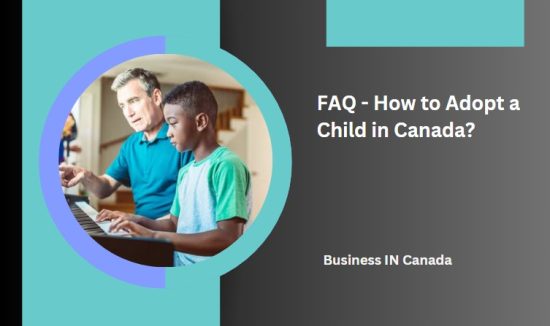
Can I adopt a child for free in Canada?
Public adoption is free, and some financial assistance is available if the child needs ongoing services, such as counselling. At the same time, Private adoption requires legal fees and other expenses that can vary greatly, depending on the circumstances.
How long is the wait for adoption in Canada?
Most families take between six and twelve months to complete the home study and adoption training. Once the training is complete, the family is ready to adopt.
What is the shortest time to adopt?
The process of adopting a child in Canada can be lengthy and complicated, with many factors affecting the timeline. While it’s difficult to predict an exact timeframe, there are some general guidelines that can help prospective adoptive parents understand what to expect. Mostly it takes between six to eighteen months to adopt a child in Canada.
Do you have to pay to adopt in Canada?
One of the most common questions about adopting a child in Canada is whether or not you have to pay. The short answer is yes, there are costs associated with adoption.
The cost of adoption can vary depending on the adoption type and the province or territory you live in. Public adoptions typically involve lower fees compared to private and international adoptions, which may require additional expenses such as travel costs.
It’s important to note that while fees may be required for adoption, they should never deter someone from pursuing their dream of growing their family through adoption. Many families find ways to fundraise or seek out financial support from organizations offering grants and subsidies for adoptive families.
Additionally, some employers offer benefits that cover certain aspects of the adoption process, such as legal fees and home study costs. It’s worth exploring all options available before letting finances become a barrier in your journey toward parenthood through adoption.
Can I legally adopt my friend Canada?
In Canada, it is possible to adopt a friend legally, but the process can be complex and requires meeting specific legal requirements. For example, the adoption must be in the child’s best interests, and both parties must consent to the adoption.
If you are considering adopting a friend’s child or having your child adopted by a friend, seeking legal advice and guidance from an experienced family lawyer is crucial. They can help you understand your rights and obligations throughout the adoption process.
Adopting a child is not an easy decision, but proper preparation and understanding of what to expect during each step of the process could bring joy into your life and that of a deserving child who needs love and care.
We hope this article has provided valuable insights into how to adopt a child in Canada. Remember that every case will have unique circumstances; therefore, consulting with professionals like social workers, lawyers, or adoption agencies would always be prudent before embarking on any adoption journey.




